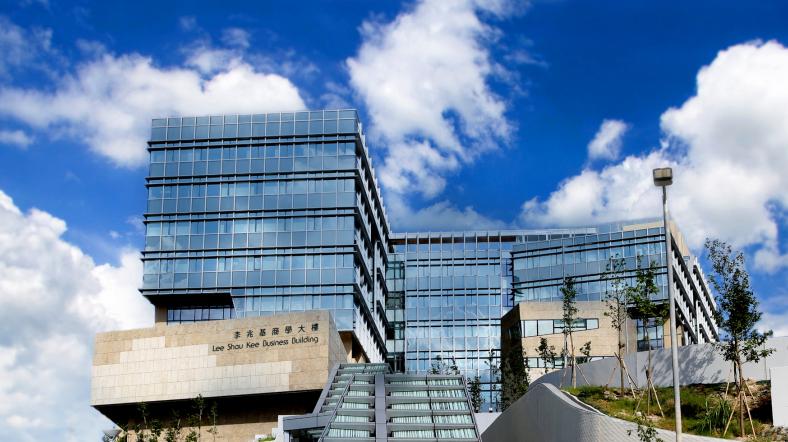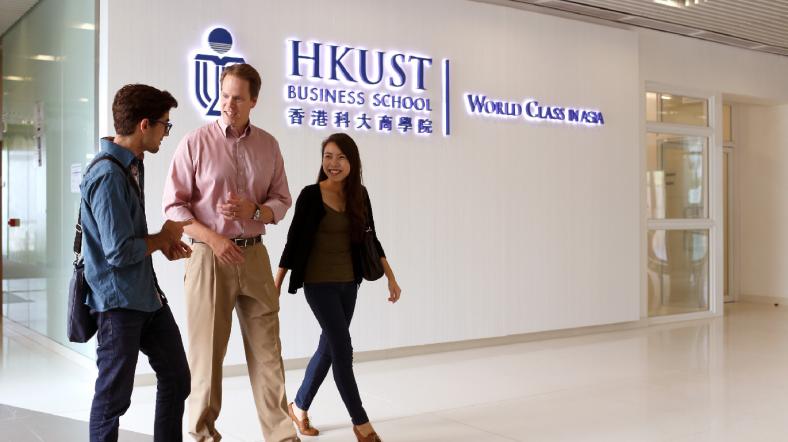Alignment with Personal Development Goals
It is essential to align your choice of MBA destination with your personal and professional development goals, as each location offers unique industry landscapes, networking opportunities, and cultural experience.
Hong Kong and Singapore are frequently compared as Asian economic powerhouses. As a global financial hub bordering mainland China, Hong Kong provides unparalleled access to the world's second-largest economy (According to the World Bank). This proximity opens doors to vast business opportunities and allows you to tap into China's booming markets. With its strong economy, low taxation regime, business-friendly environment and vibrant pace, Hong Kong offers an ideal location to develop a career in different industries, or leverage your MBA to transition into strategic roles within multinational corporations.
Singapore, on the other hand, is often considered Asia's Silicon Valley, boasting a thriving tech and startup scene that attracts those seeking an entrepreneurial environment. Ultimately, the best choice depends on your own career aspirations – whether you envision yourself navigating the complexities of global business landscape amidst Hong Kong's diverse cultural tapestry, or driving innovation within Singapore's dynamic startup sector and network with Southeast Asian countries.
Post-graduation Work Visa Flexibility
When choosing an MBA location, visa policies play a crucial role. Unlike traditional employment visas that restrict your job search or require employer sponsorship in other countries like the US or Singapore, Hong Kong's Immigration Arrangements for Non-local Graduates (IANG) visa offers unparalleled flexibility. With the IANG visa, you will have a generous 24 months to secure employment after graduation, providing ample time to explore diverse opportunities, start your own business, or gain valuable experience across different industries. This flexibility allows you to shape your career path according to your passions and ambitions, without having to go through the uncertainties of work visa application in other locations.
Harsh Mody’s Strategic MBA Choice
Take it from Harsh Mody, an HKUST Full-time MBA alumnus from Class of 2018 who strategically picked HKUST MBA as his launching pad to pivot his career from investment banking and startup to management consulting. Mody set his sights on Asia's high-growth market, particularly China, and strategically landed in Hong Kong for its flexible IANG work visa and expat and business-friendly environment. While in other countries like the US or Singapore, Mody felt their visa limitations for foreigners and the uncertainties in eligibility to work there would make their post-MBA career journey trickier. Harsh's post-MBA career trajectory took him from consultant to his current leadership position as Principal at the Boston Consulting Group in Hong Kong.
“I chose Hong Kong specifically for its very liberal Visa regime. The HKUST MBA did a good job of making available a lot of different tools. MBA is a very personal journey and it comes down to each individual how you choose to leverage those resources,” said Harsh in an alumni sharing webinar.
To learn more about the opportunities that HKUST MBA has to offer and experience firsthand our world-class education, sign up for a masterclass today:
join our masterclass
Table Summarizing Considerations of MBA Study in Popular Locations
| |
US
|
Europe
|
Hong Kong
|
Singapore
|
| Major Post-MBA Visa Policies for International Graduates |
- Optional Practical Training (OPT): Graduates can work or intern for an employer or be self-employed in the US for 12 months1
- H-1B visa: Sponsor required from employer in a job that requires a specific degree, lottery-based with an annual cap or limit number of visas1
|
- Depends on the European Union (EU) or European Economic Area (EE) state, non-EU / EEA graduates could typically be granted a possibility to stay for 6 (e.g. Denmark) to 18 months (e.g. Germany) to find a job or start a business upon graduation2
|
- Non-local recent graduates are not required to have secured an offer of employment and may apply for a grant to stay for 24 months, provided they meet the normal immigration requirements3
|
- Employment Pass: For foreign professionals reaching monthly salary threshold after faily competing with all job seekers4
- EntrePass: For foreign entrepreneurs starting a business that is venture-backed or possesses innovative technologies4
|
| Market Landscape |
- The largest and highly dynamic economy
- Lots of opportunities in various industries
|
- A mature market with diverse presence of multinational companies
- Higher social and environmental awareness
|
- International hub of banking, finance and professional services
- Gateway to China, the second largest economy
- Vibrant business opportunities connecting the East and West
|
- Regional hub to Southeast Asia
- Multicultural melting pot with diverse population
- Innovative in developing and adopting smart nation initiatives
|
| Minimum Salary/Income Tax Bracket |
10%5 |
Depend on countries
- UK: 10%6
- France: 11%7
- Germany: 20%8
|
2%9 |
15% (for non-residents)10 |
| Remarks: Information in this table is updated as of March 2024 and for reference only. Always check with your target school and the relevant governing body for the latest information when making your MBA decision. |
Source:
- Top MBA.com – Remaining in the US After Your MBA: OPT and H-1B Visas
https://www.topmba.com/blog/remaining-us-after-your-mba-opt-and-h-1b-visas
- European Education Area – Visas for work in Europe after graduation
https://education.ec.europa.eu/news/visas-for-work-in-europe-after-graduation
- HKSAR Immigrations Department – IANG
https://www.immd.gov.hk/eng/services/visas/IANG.html
- Singapore Ministry of Manpower – Work Passes
https://www.mom.gov.sg/passes-and-permits
- US Internal Revenue Service – Federal income tax rates and brackets
https://www.irs.gov/filing/federal-income-tax-rates-and-brackets
- Gov.uk – Income Tax rates and Personal Allowances
https://www.gov.uk/income-tax-rates
- Republique Francaise – Tax Scale
https://www.service-public.fr/particuliers/vosdroits/F1419?lang=en
- impots.gouv.fr – What is the average tax rate and do I qualify for it ?
https://www.impots.gouv.fr/international-particulier/questions/what-average-tax-rate-eligibility
- GovHK – Tax Rates of Salaries Tax & Personal Assessment
https://www.gov.hk/en/residents/taxes/taxfiling/taxrates/salariesrates.htm
- Inland Revenue Authority of Singapore – Individual Income Tax rates
https://www.iras.gov.sg/taxes/individual-income-tax/basics-of-individual-income-tax/tax-residency-and-tax-rates/individual-income-tax-rates#title2



















